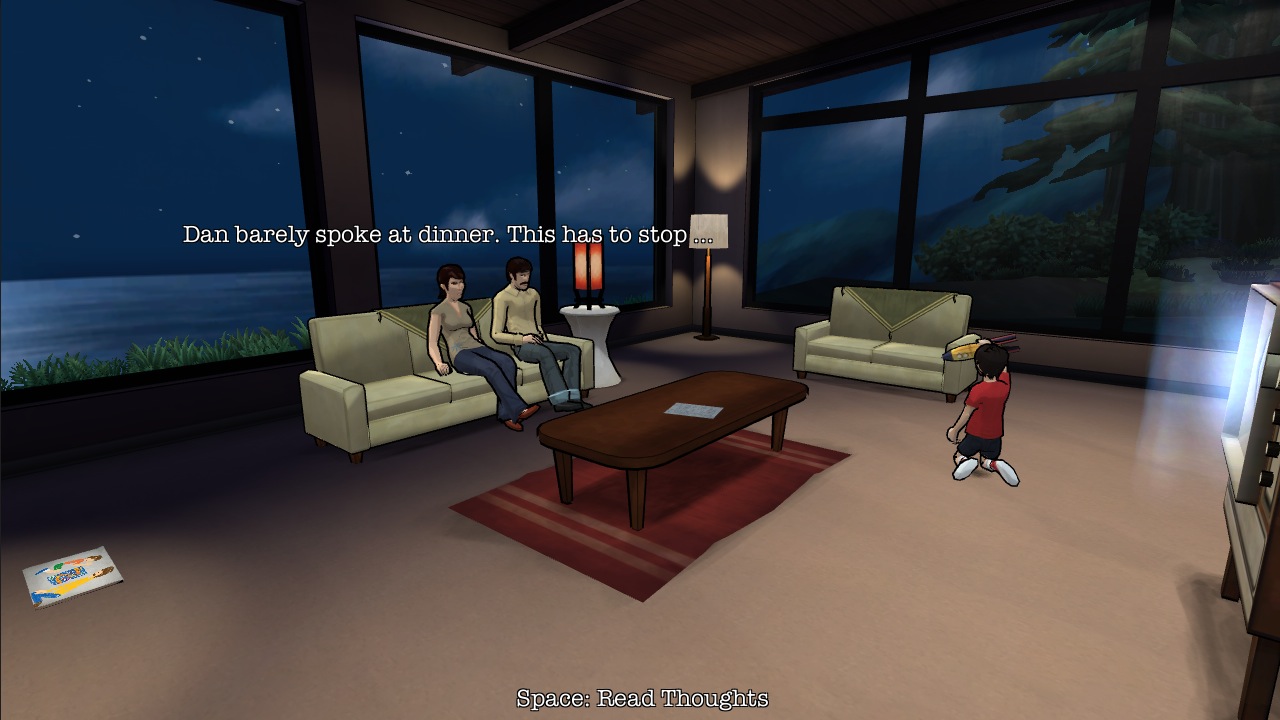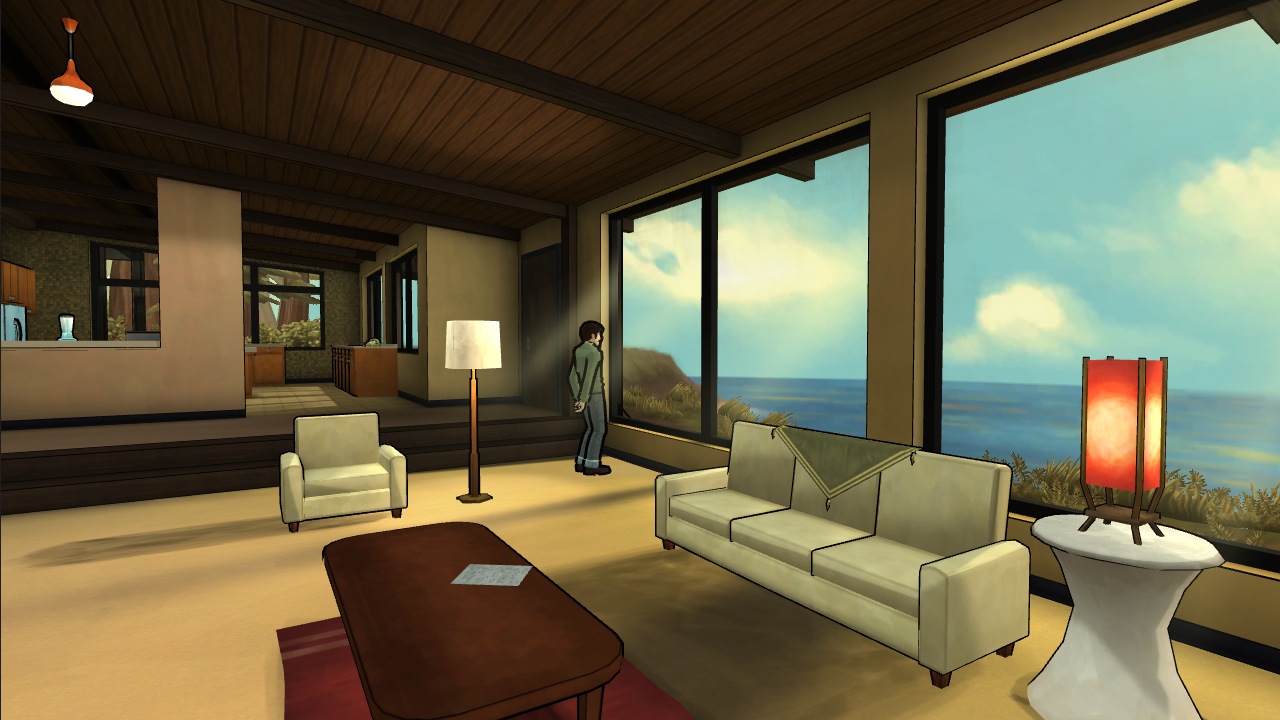The Novelist and the Wicked Problem of Player-Driven Stories
Industry veteran Kent Hudson talks about attempting to create a game that allows players to truly drive the narrative.
When we make choices in real life, we're not moving down one of a few branching paths that someone has already laid out for us. We may feel like our options are limited, but we're still shaping our own stories. For many of us, the biggest choices we make involve things that can sound rather ordinary, things like work and family. But these everyday aspects of our lives are also often what give our lives meaning, and when they pull us in different directions, the pressure can be tremendous, the emotional stakes incredibly high.
Kingdom Come: Deliverance 2 - Official Cinematic Announcement Trailer Stellar Blade - BIBI ‘Eve’ Official Music Video Trailer | PS5 Apex Legends: Urban Assault Collection Event Trailer Total War: WARHAMMER III - Elspeth von Draken Gameplay Showcase Genshin Impact - "Arlecchino: Sleep in Peace" | Official Character Teaser Potionomics: Masterwork Edition - Official Announcement Trailer Snowbreak: Containment Zone - "Gradient of Souls" Version Trailer Harold Halibut GameSpot Video Review Nancy Drew: Mystery of the Seven Keys | World Premiere Official Trailer Modern Warfare III & Warzone - Official Cheech & Chong Bundle Gameplay Trailer SteamWorld Heist II – Official Reveal Gameplay Trailer Dead Island 2 – Official SoLA Expansion Gameplay Launch Trailer
Please enter your date of birth to view this video
By clicking 'enter', you agree to GameSpot's
Terms of Use and Privacy Policy
With his upcoming game The Novelist, Kent Hudson, who previously worked on big-budget projects including Deus Ex: Invisible War and BioShock 2, has set out to explore the real-life difficulty of trying to balance the people we love with the things we need to do. The game is also an attempt to tackle what he called, during a talk he gave on player-driven stories at an IGDA event in 2011, a "wicked problem": the tremendous challenge of designing a game that tells a story in which the player makes meaningful decisions that create a unique narrative that is not prescribed by a designer. In other words, a game that tells a truly player-driven story. I asked Hudson about the challenges of designing a game with such unusual and ambitious goals.
"My goal is simply to craft interesting situations that each have three equally sympathetic viewpoints, and in turn to have characters that react believably to your choices."The Novelist is about a family, the Kaplans, who have come to a lovely coastal home for the summer. Dan Kaplan hopes to get some work done on his novel, while his wife and son have their own needs and desires. Rather than being cast as a member of the Kaplan family, you play as a ghost who inhabits the house. Of course, if the Kaplans know they're sharing the home with a specter, they're not likely to stay there and continue about their lives like everything is normal. So you need to be sneaky. "Early versions of the game gave you the ability to pick up and move objects," Hudson said, "and you could also make objects wiggle and rattle in place, but when I dug into those mechanics, it became really hard not to make it a game about scaring people. It started to verge into horror gameplay more than I wanted, so I ultimately made the decision to move the player into the background physically and push the game more toward pure stealth.
"The game is based primarily on line of sight, so staying out of sight will be very familiar to anyone that's played something like Thief or Splinter Cell. It's up to you to remain unobserved, but there are a few things that help you out. You can possess all of the light fixtures in the house, jumping back and forth between them if you want, and when you're in a light fixture, you can't be seen by the family. When you're possessing a light fixture, you can cause the lightbulb to flicker, which will attract the attention of any nearby characters. This is helpful since you have to leave the light fixtures and emerge into the house to read clues or enter a character's memory, and any time you're not in a light fixture you can be spotted."
So the stealth mechanics let you enjoy the satisfaction of sneaking around and staying out of sight, but whereas most stealth games involve goals like stealing valuable treasures or taking out high-value targets, The Novelist doesn't have such specific objectives. It's about raising questions, not about sending a particular message. Says Hudson, "My goal is simply to craft interesting situations that each have three equally sympathetic viewpoints, and in turn to have characters that react believably to your choices. I don't think I could give players a score or create a goal without implicitly editorializing and offering my own answer to the career-versus-family question, which would in turn make this a message game from me the designer instead of a question game for you the player."
What sorts of choices do you make? After exploring the thoughts of each character, you might know that Dan's wife Linda wants Dan's assistance with a project of her own, that Dan's son Tommy wants to spend some time playing with his father, and that Dan himself feels like he should get work done on his novel. You can influence Dan and make him spend his time as you see fit, but he can't be in three places at once. It's an everyday sort of decision, and like such decisions, it has repercussions. "The game," Hudson says, "is about three different points of a triangle, so to speak: Dan's career, his marriage, and his role as a father. Each decision you make has a consequence. If you choose to have Dan work on his book instead of doing what Linda or Tommy wants, then in the next chapter, those relationships will be skewed in that direction.
"If you push those relationships closer to the extremes, you start to see things spiral out of control. And if you just bounce back and forth evenly between them, you maintain a status quo that's no better or worse than when the game starts. So you need to make decisions that prioritize your values if you want to shape their lives meaningfully."
But, you might ask, isn't this just a typical branching narrative then? Sort of like Mass Effect, where the choices you make affect the situations you face and the options available to you down the line? No, it's much more structurally complex than that. Hudson wants The Novelist, as much as possible, to be a truly player-driven story. To nudge things in that direction, the chapters happen in random order. "It literally prevents me from writing a branching narrative," Hudson says. "If I don't know what comes next, I can't make future chapters contingent on the plot of previous chapters. As a matter of personal preference, I don't really enjoy branching narratives (despite having worked on games that use them) because… they just create many different crafted, designer-authored narratives. So what I've tried to do in The Novelist is make the relationships the dynamic content, not the plot. The character relationships you create are what persist through the game, and that has the by-product of putting the central question (career versus family) in the spotlight. Your answer to that question isn't based on plot developments or twists; it's based on making decisions based on your own values."
"As the player, I just want you to go through and make your own value statements through your decisions and tell the story you want to tell."Setting out as an individual to create a game as structurally ambitious as The Novelist is a creative endeavor not entirely unlike writing a novel. Both involve a good deal of time spent alone, and probably a fair amount of wrestling with difficult creative decisions. I asked Hudson about the parallels between what he's trying to do and what his character Dan is trying to do, and if working on The Novelist has given him any insights into how to balance one's creative aspirations and one's personal life.
"I didn't start out thinking, 'Let me make a metaphorical game about my own struggle' (shoot me if I ever assume my life is so interesting that anyone else would ever want to play a game about it), but as the family context came into focus, I certainly started identifying more and more with Dan's challenges," Hudson said. "To be honest, though, while the game has certainly gotten me to think more about these issues, I don't know whether I'm any closer to having an answer; I'll probably only be able to assess how things have gone after I've finished the entire process and can view it with some distance. Working on the game is my way of processing the career-versus-family balancing act, but it's definitely an ongoing thing.
"I don't know whether career or family is more important, but I try to do my best in both areas. Since this is an issue I struggle with, it would be disingenuous for me to grade players or give them a score; there are no victory conditions or correct answers to any of the situations in the game. As the player, I just want you to go through and make your own value statements through your decisions and tell the story you want to tell.
"My hope with the game is that it's a tool for players to wrestle with these issues in their own way and develop their own answers over time. In my most recent playtest, I had a number of people finish the game and then go back to do another playthrough, convinced that they could make different decisions and create an outcome they were happier with. That tells me that something about the subject matter is resonating with people."
The Novelist is currently on Steam Greenlight and can be preordered on the game's official site.
'Got a news tip or want to contact us directly? Email news@gamespot.com



Join the conversation